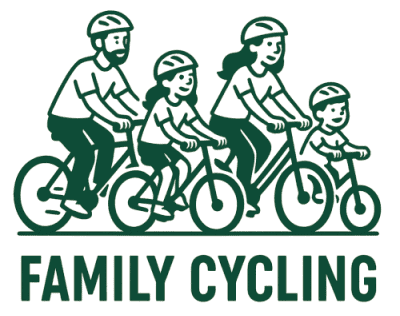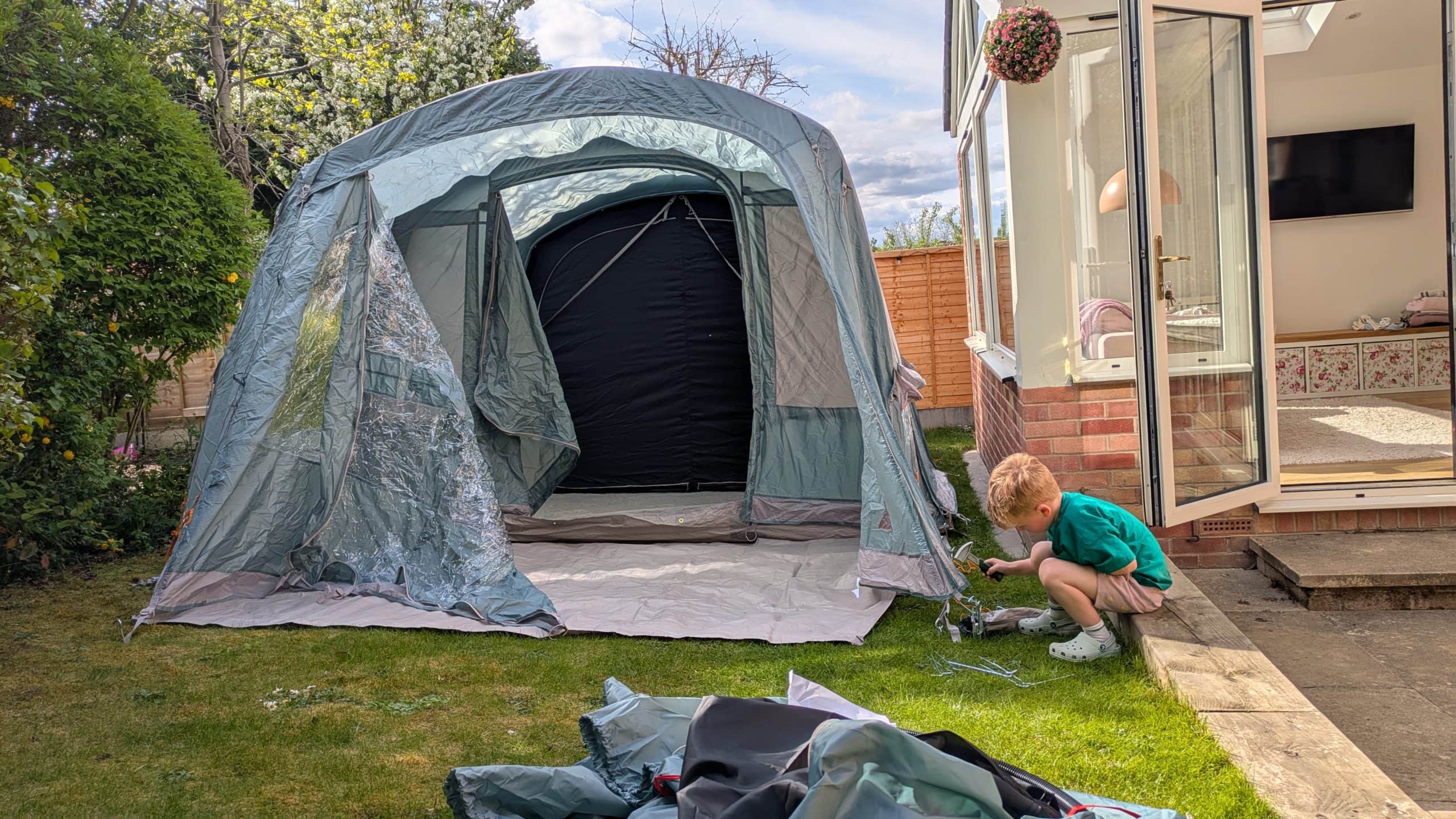We’re often told that to stay healthy, we need to hit the gym, attend spin classes, or sign up for some big challenge. None of these things are wrong. We are huge advocates of all sorts of exercise, but what if we told you that simply going about your day, whether that’s walking to school, tidying up toys, or mowing the lawn, could play a huge part in keeping you and your family healthy?
This is where NEAT comes in. And no, it’s not just about keeping the house tidy (although that helps too!). NEAT stands for Non-Exercise Activity Thermogenesis. In simple terms, it’s the energy your body burns through all the day-to-day activities that aren’t formal exercise, eating or sleeping. It’s the steps you take while walking the kids to school, the calories you burn while carrying shopping, or even the movements involved in dancing around the kitchen making tea. Yes, it sounds a little cheesy, but making some subtle changes to your routine can reap a whole host of benefits.
In this post, we’ll explore what NEAT is, why it’s so important for families, and how you can start building more of it into your day, especially with a cycling slant (because that’s our thing!)
We’ll also look at how it benefits children and how modelling these habits creates healthier, more active lifestyles for the whole family.
What is NEAT?
NEAT (Non-Exercise Activity Thermogenesis) refers to the calories we burn through everyday movement that isn’t intentional exercise. This could include walking to the shop, hanging washing out, cooking, cleaning, gardening, or standing instead of sitting. Even subtle things like fidgeting or pacing while on a phone call are forms of NEAT. Perhaps you have a work call every week at the same time, and you decide to walk instead of sitting at your desk. This is a great example of building on your current NEAT activity with new ones.
What’s especially fascinating is how much NEAT can vary between individuals. Research shows it can range by up to 2,000 calories per day, depending on how active or sedentary your lifestyle is. For some, it can be the difference between maintaining weight and gaining over time. This could include walking to the shop, hanging washing out, cooking, cleaning, gardening, or standing instead of sitting. Even subtle things like fidgeting or pacing while on a phone call are forms of NEAT.
Unlike workouts or sports sessions, NEAT is unstructured, unscheduled movement. Yet, it can contribute a significant proportion of your daily energy expenditure.
Read more: How NEAT influences energy balance (PubMed)
Why NEAT Matters for Families
We know formal exercise is importantand we are active in this area too. Resistance training is on our agenda weekly, but we’ve managed an even more impactful result on our overall health with our NEAT activity. It’s what keeps the engine ticking over all day long. It plays a major role in health outcomes, weight maintenance, and mental well-being. Here’s why it’s especially important for busy families:
1. You’re probably doing more than you think.
Whether you’re cycling to school, tidying the house, or walking the dog, you’re engaging in NEAT. These things may feel small, but they add up to a big health benefit.
2. It helps manage weight naturally.
Studies show that NEAT can vary by up to 2,000 calories per day between individuals, depending on how active their daily routine is. Walking or cycling instead of driving can make a huge difference over weeks and months.
3. It boosts mood and mental health.
Light activity improves circulation, delivers oxygen to the brain, and triggers the release of feel-good hormones. Even short bursts of low-level movement have been shown to enhance mental clarity, reduce stress, and elevate mood. A walk to the park or a playful game of tag in the garden can lift everyone’s spirits. There may be times as a family that you cannot fit in formalised training, but by building family activities around NEAT, you will continue to tick over.
4. It fights the negative effects of sitting.
Too much sitting is linked to increased risk of heart disease, Type 2 diabetes, and early death. Replacing just 30 minutes of sitting each day with light movement, such as a gentle walk or light housework, has been linked to longer life expectancy and improved metabolic health.. NEAT is the antidote: it keeps your body in motion throughout the day.
NHS Guidance: Physical activity benefits
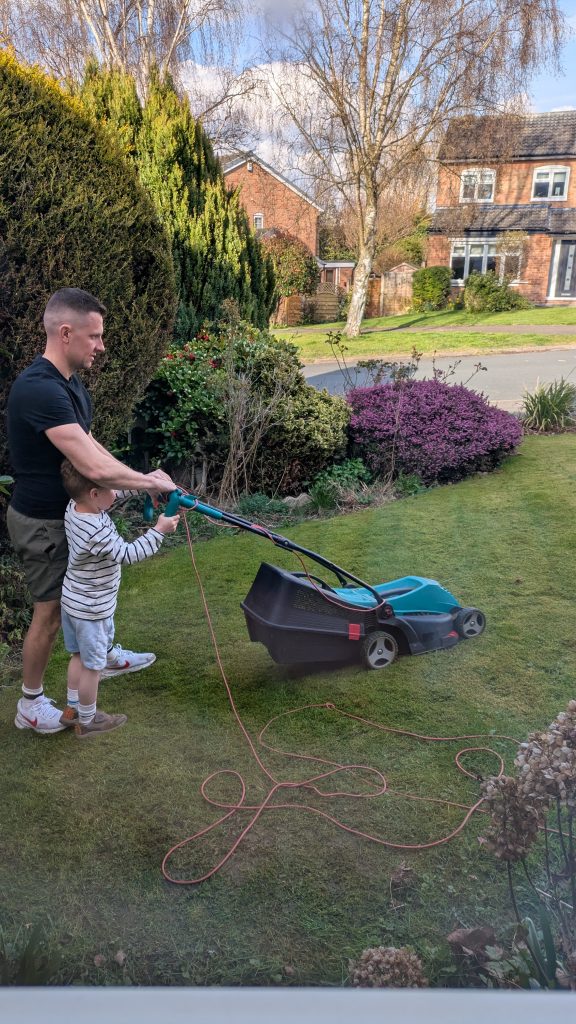
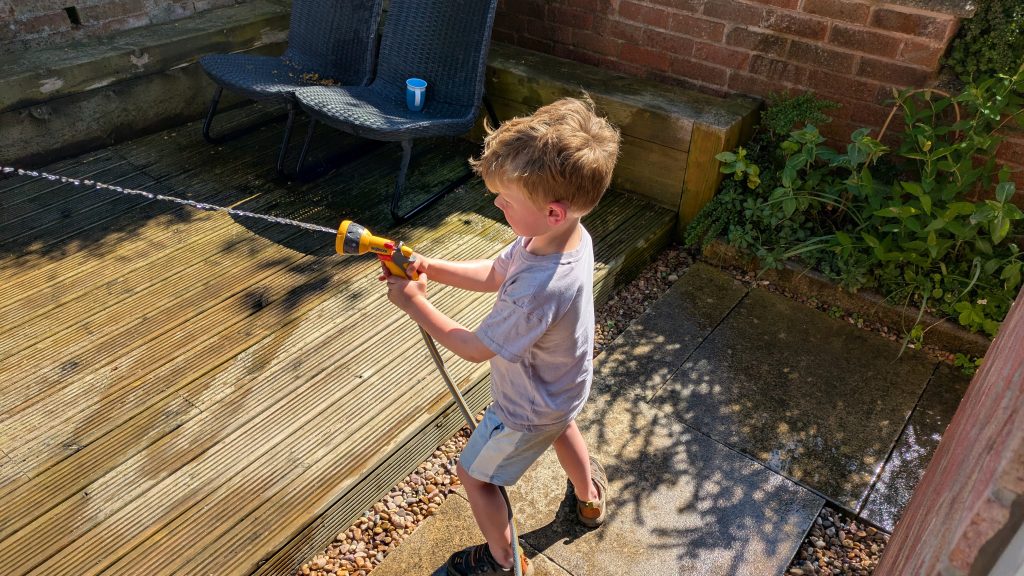
Easy Ways to Increase NEAT with a Family
We get it. Family life can be all-consuming, but health is wealth and adding more NEAT to your life can be a simple way of improving your health. Tiny habits, small subtle changes can make a HUGE difference in your overall well-being. These things are hard to quantify, whereas a gym session feels impactful, but I assure you, they are continuously working in the background.
Here’s how to naturally work more NEAT into your day:
School Runs and Errands
- Walk or cycle to school instead of driving. Small habit change,s which in most cases can be more efficient
- Use a cargo bike or child seat to take little ones with you on errands.
- Walk the last 10 minutes of your commute if biking the full way isn’t feasible. If you work in an office, consider a car park or safe parking spot closer to your home, which gives you a mile before & after work to walk to the car. Starting and ending your day with a walk with a perfect way to top up your NEAT.
Housework & Chores
- Make tidying up a team sport. Kids love a challenge – “Who can put toys away the fastest?”
- Mow the lawn, hoover together, or clean the car as a family. My kids love this type of activity, and it encourages them to be outside more, particularly when it comes to garden care.
- These small jobs can burn 150–300+ calories per hour so they soon add up. It’s not all about the calories, too. It’s how they make you feel. Humans are designed to ‘complete’ things. It’s a sign of progress. Little things are accomplishments too, and all add up.
Park Trips & Outdoor Play
- Active play is a form of NEAT. Play tag, climb, run, and get involved. We structure all our weekends around being outside and active if the weather permits. Even if it doesn’t, we’ll choose an activity which involves some sort of activity (museums, rock climbing, swimming)
- Visit local parks and reservoirs. Let children lead the play. It’s great for building confidence and movement patterns, and also brilliant for adults.
Around the Home
- Painting, gardening, cleaning windows, or a bit of DIY? Try not to outsource all of the physical chores you have to do within an active household. These things may be a break from your usual activity (especially if you have a desk-based job) and bring satisfaction.
- Even standing up while folding laundry is more NEAT than sitting on the sofa.
Movement Breaks
- Encourage breaks from screens with short bursts of movement. My wife and I tend to go for a walk after lunch 2-3 times a week. We are both fortunate to work from home, but this is crucial for those who work out of the house too. Even if your job is pretty active, it’s a different type of exercise.
- Remind kids (and yourself) to get up, stretch, or walk around. From our perspective, we’ve built movement into our day-to-day routine. School runs, weekend activities all revolve around movement, so it comes naturally to both Matilda & Barney.

How NEAT Helps Children (and Why It Starts With You)
Children learn by example. Research consistently shows that children with active parents are significantly more likely to be active themselves. Modelling movement-rich routines helps embed healthy habits from a young age.. When they see parents choosing to cycle to the shop or walk to school, they begin to view movement as a normal part of life.
Benefits for children include:
- Improved physical health: Stronger bones, better cardiovascular fitness, healthier weight.
- Mental well-being: Movement improves focus, reduces anxiety, and supports better sleep.
- Confidence and independence: Children who are active from a young age often become more self-reliant and physically confident.
Plus, by making family chores fun and encouraging active play, you’re reinforcing that movement doesn’t have to be a chore – it can be a game, a journey, or a shared moment together.
Public Health England: Childhood Obesity Data
How It Fits the Family Cycling Ethos
At Family Cycling, we believe in making movement part of your everyday life, not something separate that you squeeze into a schedule. NEAT reinforces this idea. For parents juggling work, kids, and house admin, you may have weeks where you have less time to fit in active workouts.
But NEAT offers a low-pressure way to stay active through your normal routine. Although a gym membership or dedication to a particular discipline can take you to the next level, you don’t need either of these to improve your health. You need daily habits that promote movement:
- Cycling to school instead of driving.
- Walking to the park instead of scrolling for another 20 minutes.
- Tidying, gardening, and exploring together as a family or as a couple. My wife and I walk regularly as we know they have a huge benefit to how we feel. They are hard to quantify in the same way a work meeting is, but should be equally as important.
This is how active, healthy families are built. It’s not flashy. It’s not expensive. It’s consistent.
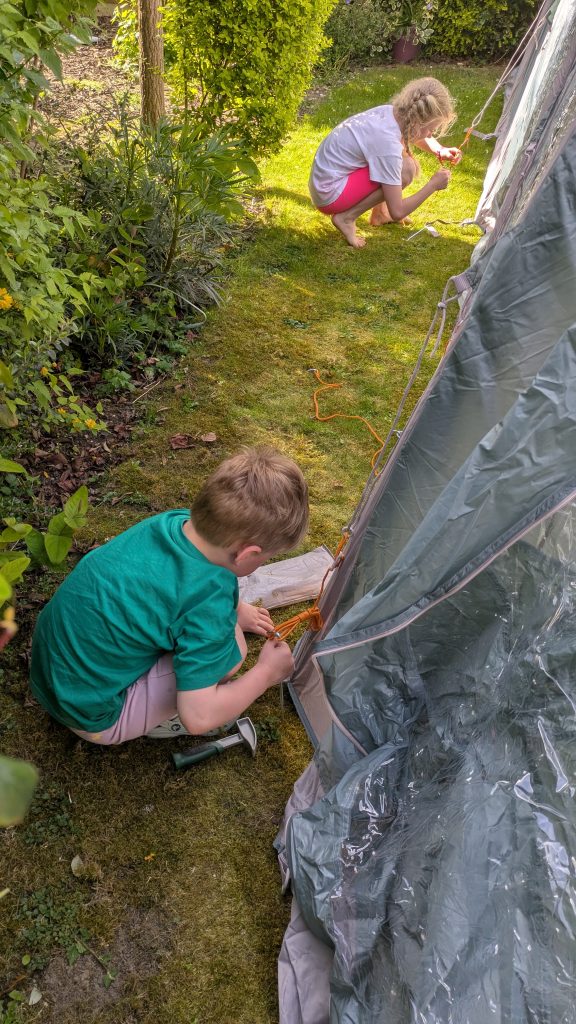
A Real-Life Example: A Small Change, Big Impact
Let’s imagine a school friend, perhaps a fellow parent with two kids, whom you regularly speak to at the school gate. Due to a change in job circumstances, they now have the flexibility to work from home most days. That one change allowed them to completely rethink how they approached the school run and, in turn, their day-to-day activity levels.
Instead of the usual car journey, they now cycle or walk the 1.5-mile route with their children each morning and afternoon. It takes a little longer, but they’re no longer stuck in traffic and they arrive home mentally refreshed, ready to take on the day. The time they have saved commuting is now spent cycling to and from school, which is a positive step in their lives.
How has it improved their NEAT?
Swapping the car for active travel has added an extra 6 miles of cycling to their daily routine — 1.5 miles to school and back in the morning, and again in the afternoon. Each 1.5-mile journey takes around 10–12 minutes at a gentle pace, totalling roughly 40–50 minutes of consistent pedalling every day. It’s enough to boost circulation, elevate mood, and steadily burn calories, all without the need for formal exercise time.
The impact on health:
They’ve noticed better energy levels, more focus during work, and a more positive outlook. Weight has gradually decreased, and crucially, they are feeling good about themselves.
Habits for the children:
The kids have begun to expect the bike ride each day. They chat more on the journey, have developed road safety awareness, and arrive at school alert and happy. Weekends now involve more walks and rides too, movement is simply ‘normal’ now.
Happiness and lifestyle:
This parent reports lower stress, better sleep, and a genuine sense of enjoying the school run, something they’d previously seen as a chore. The school drop-off was always a battle for parking spaces, as most schools haven’t been designed for the volume of cars in and around the school games.
It’s a small, subtle change, but it’s completely flipped and mindset and approach to the school journey.
Could this be you?
While not every job or home situation allows for this shift, if there’s a chance to swap even part of your day for a walk or bike ride, the ripple effect can be huge. NEAT is about the small wins. Could you park a bit further from school? Walk the last half-mile? Try a cycle on Fridays to start? It might sound like nothing, but the compounding effect is profound.

Final Thoughts
NEAT is a silent hero in family health. It’s the activity that happens when you’re not thinking about it. The walk to school, the game in the garden, the chores that get your body moving. It’s a change in mindset and approach to these things which makes them more joyful.
It’s accessible to all and a fantastic way to lead by example.
The biggest impact NEAT will have on you is the fact that it’ll inspire you to do even more. Cycling, outdoor play, and a balanced approach to exercise will all come as a result of increasing your day-to-day activity levels. It becomes what you do. Furthermore, it’ll shape your children too, and you will be well on your way to raising resilient, active, healthy children.
So next time you’re mowing the lawn or chasing the kids at the park, smile. Not only are these activities a big part of the growth of children,n but they are also good for adults too.
You’re essentially working on your fitness, your mental health, and your family’s well-being simultaneously.
Let us know how your family builds NEAT into daily life. Do you cycle to school, make chores a game, or explore parks together? We’d love to hear your stories. Drop us a comment below!
FAQ
What is NEAT?
NEAT stands for Non-Exercise Activity Thermogenesis—all the unstructured movement we do daily, like walking, cycling, chores, or playing outside.
Why does NEAT matter?
It helps families stay active without needing workouts. It’s sustainable, fun, and builds long-term healthy habits for kids and adults.
How can we add NEAT into our day?
Walk or cycle short trips, take the stairs, play outside, do active chores, and make errands part of your movement routine.
Is NEAT enough for kids?
Yes, especially when combined with occasional sports or longer rides. It builds baseline fitness, coordination, and confidence.
Do we need to track it?
Not really—but simple step counts, a weekly activity log, or just noting regular movement (“we walked to school 3x”) helps build awareness.
Can we do it as a family?
Absolutely. Use scooters, balance bikes, or walk together. It’s a brilliant way to bond and move more.
What kit do we need?
Basic: comfy shoes, bikes, helmets, weather-appropriate clothes, and maybe snacks. No gym gear required.
How do we keep kids interested?
Keep it fun! Let them choose routes, add games or challenges, and celebrate wins, like “10 walks this month!”
What if the weather’s bad or we’re busy?
Move indoors. Dancing, active play, or house jobs count too. Even parking a bit further from school helps.
Where do we start?
Pick one easy habit (e.g. walk to school once a week), stick with it, and slowly build from there.
Sources:
- Levine, J. A. (2004). Non-exercise activity thermogenesis (NEAT). Best Practice & Research Clinical Endocrinology & Metabolism, 18(4), 599–610.
- NHS: Benefits of exercise – Overview of how regular physical activity improves overall health and reduces disease risk.
- Web MD: Calories burned from daily chores – A breakdown of how everyday tasks contribute to your daily energy expenditure.
- Public Health England: National Child Measurement Programme – BMI Trends – The latest UK data on childhood obesity and physical health.
- Metabolism and weight loss: How you burn calories – How even light, unstructured movement can support weight management and mental health.
Last Updated on July 3, 2025 by Ryan
Hello. I am Ryan and along with my wife Beth and our two children Matilda and Barney, we love all things cycling and exploring. We spend our weekends exploring fun places to cycle and discover and wanted to help other people do the same too. There’s no better way to travel than via bike and it’s an amazing activity for the whole family to enjoy.
